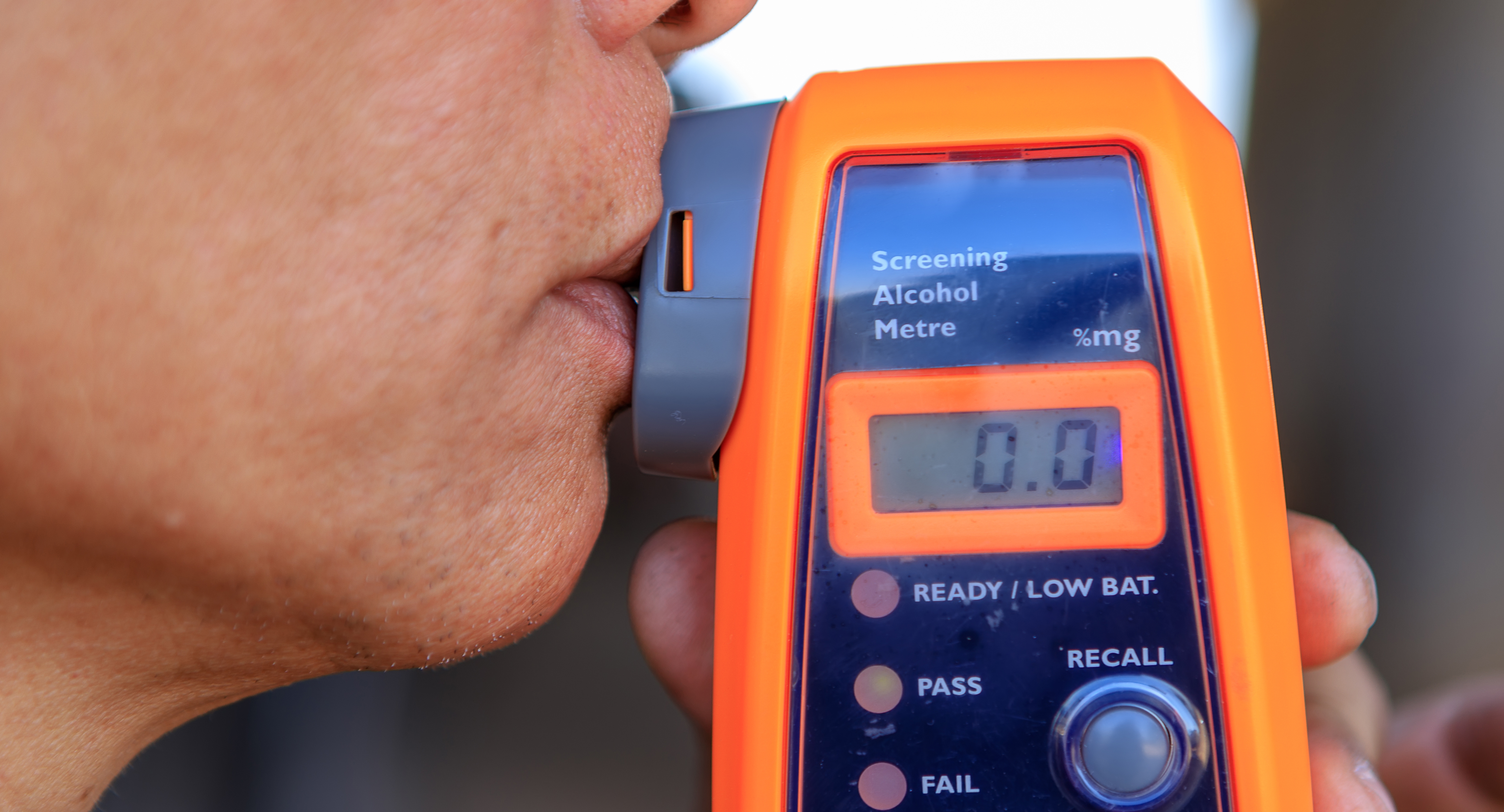If you’ve been arrested for Driving While Intoxicated in Texas, you’ll be relieved to hear that not all charges lead to a conviction. With help from an experienced criminal defense attorney, it may be possible to have your DWI charges dismissed.
Furthermore, depending on how a dismissal is earned, it may be possible to get all records of the arrest and charges sealed or expunged.
In this article, we offer a comprehensive guide to DWI dismissals in Texas. However, if you or someone you care about are facing DWI charges today, you should contact a criminal defense lawyer as soon as possible. The consequences of a DWI conviction can be devastating, and every moment wasted is another moment that could have been spent on building a robust defense case. Contact Michael & Associates today to get a free case review.
Understanding DWI Dismissals
If your Driving While Intoxicated charges are dropped or dismissed, it means that either:
- The case against you was not compelling enough to warrant a conviction,
- Procedural errors occurred during your arrest, or
- You’ve successfully completed deferred adjudication or a pre-trial diversion program.
Either way, a dismissal means you’ll be free to walk away without facing the legal consequences of a conviction.
However, even after a DWI dismissal, unless you take action to have your records sealed or expunged, anyone, such as a landlord, an employer, or a credit provider, who runs a background check on you, will learn that you were arrested and charged with a DWI that did not result in a conviction.
Having your records expunged will mean that all accounts of your arrest and charges will be destroyed; it will essentially be as though you were never arrested in the first place.
Expungement isn’t always an option, however. For example, if your DWI is dismissed after successful completion of deferred adjudication, you may be able to petition for an order of non-disclosure, which will seal your records from most employers and non-government agencies, but you won’t be eligible to apply for expungement.
Key Factors Leading to DWI Dismissals
The presence or the lack of various factors can weaken the prosecution’s case and lead to a DWI dismissal. Mistakes made during the initial traffic stop and arrest and inaccurate testing can be enough to get the charges against you thrown out. A successful defense strategy may win DWI cases that do go to trial. Common critical elements that lead to a dismissal of DWI charges in Texas include the following.
Lack of Reasonable Suspicion
For a traffic stop to be considered legal, the law enforcement officer must have reasonable suspicion that a crime is being—or about to be—committed. If the officer who arrested you did not have a valid reason for stopping you, any evidence they obtained during the stop could be deemed inadmissible in court. A lack of evidence can then lead to the dismissal of the charges.
Reasonable suspicion can include:
- Erratic driving manoeuvres
- Swerving in and out of traffic
- Driving very slowly
- Driving recklessly
- Failing to stop at stop signs and red lights
- Any other standard traffic violation
Lack of Probable Cause
After a police officer has stopped you, they must have probable cause to believe you are intoxicated before they can place you under arrest for DWI or search your vehicle. If the police officer lacks probable cause—concrete evidence or observations of wrongdoing—then the evidence gathered may be suppressed. As with reasonable suspicion, this can lead to a lack of evidence, forcing the state to drop the charges against you.
Probable cause can include:
- Breathalyzer results
- Failed field sobriety tests
- Dangerous or reckless driving (such as driving the wrong way)
- The smell of alcohol or drugs in your vehicle or on your breath
- Drugs or open containers of alcohol in plain view (in the vehicle)
- Slurred speech and impaired reactions
Insufficient Evidence of Intoxication
Before you can be convicted of Driving While Intoxicated, prosecutors must demonstrate that you were:
- Legally intoxicated or observed to show a lack of your normal mental or physical faculties
- Operating a vehicle at the time of intoxication
- In a public place
Without sufficient evidence meeting the above criteria, it can be difficult for prosecutors to prove guilt beyond a reasonable doubt. If the state does have hard evidence to use against you, your defense lawyer may challenge the accuracy or validity of said evidence. For example, they may challenge:
- The accuracy of Breathalyzer results: Breathalyzers do not always provide accurate and reliable results. Several factors, such as improper use due to lack of training or failure to calibrate the machine, could also give inaccurate readings. Furthermore, some prescription medications, mouthwash, and other substances could result in a higher-than-usual Blood Alcohol Content reading.
- The accuracy of other Chemical tests: When it comes to blood tests and urinalysis, contamination, and errors in the lab could lead to false results. Urine tests can be especially inaccurate—this method is typically used if the police believe the defendant may be under the influence of drugs. Traces of some drugs remain in your system for several days, even if you no longer feel the effects.
- The validity of field sobriety test results: Although field sobriety tests are usually conducted to gather probable cause for arrest, the officer’s observations, as well as bodycam footage, could be used against you in court. However, there are many reasons why a sober person could fail these tests, including:
- Medical conditions that cause difficulty in balancing
- Loud roadside conditions making it difficult to hear instructions clearly
- Poor weather conditions, including strong wind
- Less-than-ideal footwear
- Less-than-ideal or bumpy ground
Dismissals Eligible for Expungement
Depending on the type of dismissal you’re granted, you may be eligible to apply for expungement—a permanent erasure of all records of your arrest and charges. The following types of dismissals are eligible for expungement:
- Rejection of charges: Rather than a ‘dismissal,’ this is when prosecutors decide not to pursue charges at all—usually due to a lack of evidence, errors made during the arrest procedure, or blood test results coming back showing the defendant’s BAC limit was in fact below the legal limit.
- Straight dismissal: If evidence of intoxication put forward by the state is very weak or proven inadmissible in court due to procedural errors during the arrest, the case could be entirely dismissed.
- Pre-trial diversion program: Not all counties offer pre-trial diversion programs. For those that do, pre-trial diversion programs are available to some first-time offenders—provided they meet several criteria. If you apply for pre-trial diversion, you can avoid court entirely. You must meet various conditions throughout the program, including submitting drug testing, community service hours, and regular reporting to a supervision officer. Providing you successfully complete a pre-trial diversion program, you can then have the charges expunged.
- Deferred prosecution agreement: This is a type of “unofficial probation” where you enter a contract with prosecutors. If you comply with the conditions of the agreement for a set period (usually 1–2 years), the charges against you are dropped. Conditions typically include requirements such as counseling and community service.
- Deferred Class C ticket: If your DWI incident was reasonably straightforward with minimal or no damage done (no collision, low BAC, and no prior arrests), your charges could be reduced to a Class C ticket—usually given out for minor traffic violations. You may be required to pay fines and comply with other terms and conditions, such as attending alcohol education classes. Providing you abide by the conditions, you should be eligible for expungement.
Dismissals Eligible for Sealing
Not all dismissals can be expunged. For example, in the case of deferred adjudication, the judge withholds a conviction and sentencing pending the successful completion of community supervision. Once successfully completed, the DWI case is dismissed but not eligible for expunction.
- Obstruction of Highway Deferred Adjudication: Sometimes, prosecutors may agree to dismiss the DWI charges and file new, reduced Obstruction of a Highway charges. After successfully completing community supervision for Obstruction of a Highway, you can have the charges sealed but not expunged. As the original DWI charge would have been dismissed, however, it would be eligible for expunction.
There are a couple of advantages to this reduction of charges:
- Deferred adjudication for obstructing a highway falls under the category of charges eligible for “automatic” non-disclosure. Although you still need to petition for an order of non-disclosure, the judge cannot refuse—providing you’re eligible and have successfully completed community supervision.
- There is only a 180-day mandatory waiting period from the start of deferred adjudication before you become eligible to petition for non-disclosure. This is a much shorter period than that faced by defendants handed a DWI deferred adjudication.
- DWI Deferred adjudication: If you successfully complete the deferred adjudication program, you can petition for an order of non-disclosure, sealing your records from public view.
Specialty Programs and Dismissal Tracks
Specialty diversion programs offer dismissal tracks that aim to help individuals avoid a conviction by committing to a community supervision program that includes educational classes and other rehabilitative treatments. These programs usually have strict eligibility criteria.
Project Engage is a diversion program for minors aged 17–20. The program aims to offer minors assistance, education, and support, helping them avoid the criminal justice process. The program promotes rehabilitation and aims to reduce the risk of reoffending.
Those accepted into the program must comply with bond conditions set by the court, attend monthly programming sessions in the community, and attend all other educational classes as required by a personalized plan. The program can last between 1–12 months.
Once successfully completed, the DWI charges are dismissed, and participants are offered an expedited expunction.
Veteran Court is a diversion program for veterans, offering them a supervised treatment option in an effort to divert them out of the criminal justice process. The program focuses on providing appropriate rehabilitation and support.
Veteran Court is a 6–24 month program, and, as with Project Engage, once the program is completed, the criminal charges are dismissed.
To qualify for Veteran Court, you must meet the following criteria:
- Must be a veteran or current member of the United States Armed Forces
- There must be a connection between the offense and military service
- You received an Honorable or General Under Honorable conditions discharge
Expungement Through Jury Trial or Suppression Hearing
If you win your criminal court case before a jury trial, the charges against you will be dismissed, and you’ll be eligible for expungement. Winning a DWI case is not easy, but with help from a skilled defense attorney, it is possible.
Evidence that’s gathered illegally is not admissible in court. If it can be demonstrated in a suppression hearing that the law enforcement officer who stopped and arrested you did not have reasonable suspicion (for making the stop) or probable cause (for arresting you), you can ask the court to exclude the evidence, significantly weakening the prosecutor case against you.
In both the above cases, once the charges are dismissed, you will be eligible to apply for expungement.
Deferred Adjudication Probation on a DWI
In circumstances where a straight dismissal or reduction of charges is not possible, DWI deferred adjudication can be the best outcome. Deferred adjudication is not technically a dismissal. Instead, it’s a non-conviction. As such, you cannot have these charges expunged, but you can petition for non-disclosure following the successful completion of community supervision.
Following the successful completion of the program, a mandatory waiting period must expire before you become eligible to apply for non-disclosure. Depending on the terms and conditions of your deferred adjudication, this waiting period can be 2, 3, or 5 years.
Legal Representation and its Role in DWI Dismissals
Skilled DWI attorneys have the in-depth knowledge and experience necessary to navigate the complexities of the legal process and fight for the best possible outcome for you. They can thoroughly investigate the details of your DWI case, challenge evidence, and identify potential procedural errors or violations that could earn you a dismissal.
Having a knowledgeable defense attorney on your side can mean the difference between an outright dismissal and expungement of charges and a conviction, resulting in a lengthy jail sentence, thousands of dollars in fines, and a permanent criminal record.
Choosing the right lawyer can mean saving your future—it’s not something worth risking. If you are facing DWI charges today, contact Michael & Associates to get a free case review.
FAQs About DWI Dismissals
How many ways can a DWI case be dismissed in Texas?
There are several ways for DWI cases to be dismissed in Texas, though not all are eligible for expungement.
The dismissal types include:
- Rejection of charges
- Straight dismissal
- Pre-trial diversion program
- Deferred prosecution agreement
- Deferred Class C Ticket
- Deferred adjudication for Obstruction of a Highway (reduction of charges)
- Project Engage diversion program
- Veteran Court diversion program
- Suppression Hearing
- DWI Deferred Adjudication
Which types of DWI dismissals are eligible for complete expungement?
Rejection of charges, straight dismissals, pre-trial diversion programs, and Class C tickets are all eligible for expungement.
What dismissals can be sealed, and what is the process?
Deferred Adjudication dismissals cannot be expunged, but they can be sealed. For DWI deferred adjudication, there is a mandatory 2, 3, or 5-year wait period from the successful completion of the deferred adjudication program before you can petition for non-disclosure.
Once all fines and restitution have been paid and the program completed, you must file your petition or application with the clerk of the court that handled your case.
Are there specialty programs with dismissal tracks for DWI cases?
- Project Engage is a diversion program in Travis Country aimed at minors aged 17–20
- Veteran Court is a diversion program aimed at veterans of members of the Armed Forces.
Both programs offer a dismissal track for DWI cases, but the eligibility criteria are strict.
How long does a dismissed DWI stay on record in Texas?
Forever. A dismissed DWI will remain on your record unless you take action by applying to have it expunged. The sooner you begin this process, the sooner you can clear your record.




